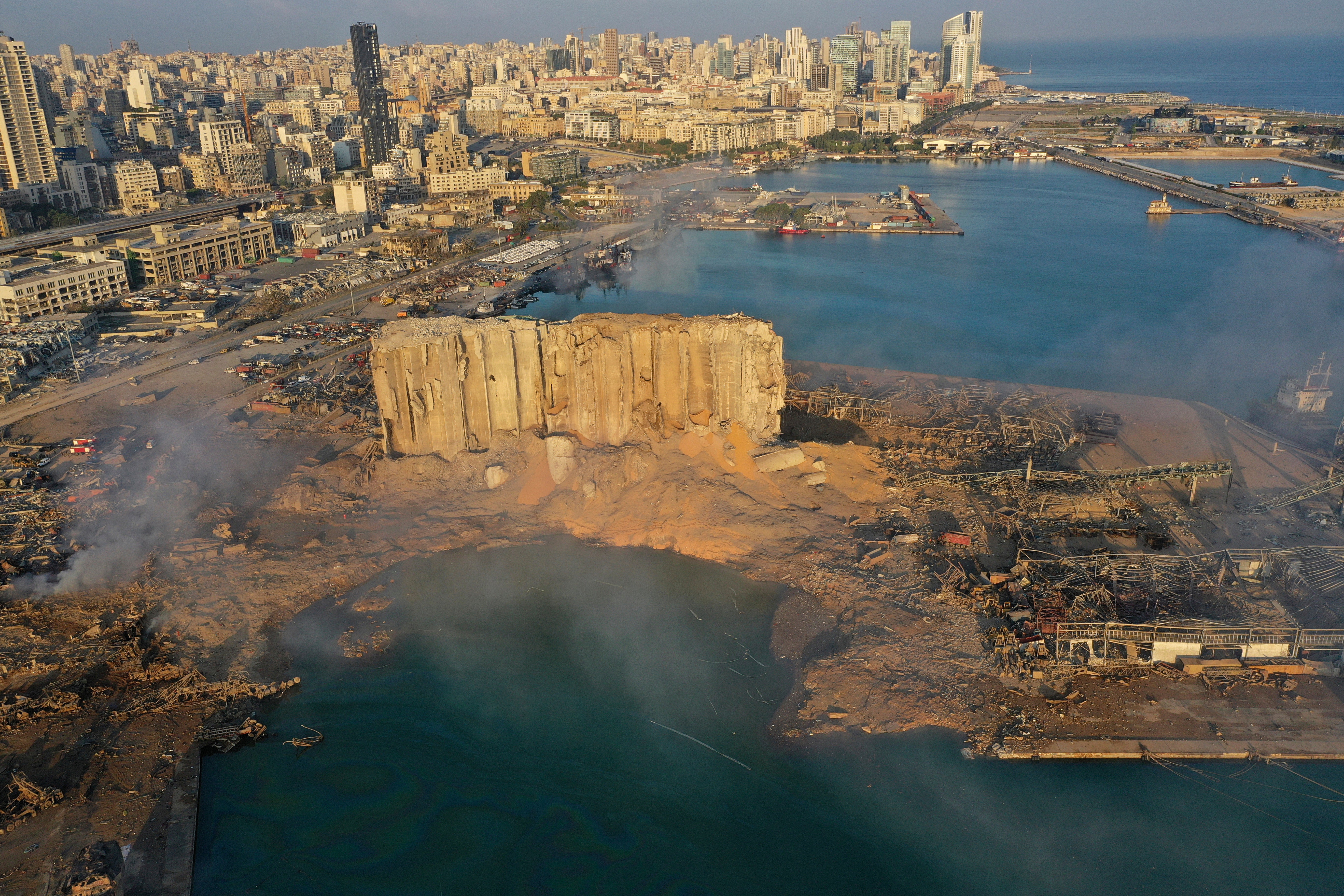Tensions are running high in Lebanon one year on from the Beirut blast
It seems like almost everyone I speak to has plans to protest on Wednesday

Working for a Syria-focused charity means spending lots of time in Lebanon, engaging with the refugee community here. Visiting Lebanon has become like visiting a family member in hospital. You love them, you can’t wait to see them, but you notice, each time, their condition has deteriorated dramatically.
To extend the analogy to its completion, in this case, you fear that the people who are supposed to be helping them have spent all the money for their care on cars, mansions and parties.
On 4 August 2020, a blast ripped through the heart of Beirut and the world, for once, began to pay attention to Lebanon’s problems. However, after only a few days, the world once again turned away.
For many, the explosion is not a cause of Lebanon’s problems, but rather a symptom of them. Most people I speak to here feel that it is a result of corruption from the elites, kept in place by a political system which aims to ensure that all of Lebanon’s different religious groups have a say in power-sharing.
Increasingly, the accusation is also being made that political leaders are using sectarian rhetoric to sustain their position and support within their communities. As Hassan, 23, says: “Sectarian conflict is like oxygen to the politician’s lungs. If the people are fighting each other, they aren’t turning their attention towards the real problem: the politicians.”
The civil war which ended in 1990 is still a constant reminder, held over those who want the system to change. They claim the only alternative to the status quo is the bad old days of sectarian bloodshed. The shootings between Sunni and Shia groups earlier this week will help them make their case.
My friend Osman, 26, was born and raised here, but because he is from a Palestinian refugee family, he has no voting rights and is restricted on being able to buy property. There are other barriers kept in place to ensure that Lebanon’s large Palestinian and Syrian refugee population don’t affect the delicate balance between religious groups. He tells me that he thinks the stalemate will continue until at least the next elections in 2022.
The prime minister (who, convention dictates, must be Sunni) Hassan Diab tried to resign in response to the blast last August, but as the president (who must be Christian) has yet to approve a replacement cabinet, Diab is still officially in office despite resigning almost 12 months ago.
I recall visiting Lebanon in the winter of 2019 and getting 1,000 lira for 1 US dollar. Now, $1 gets you 20,000 lira. Sara, 24, says that her friends are talking about Lebanon soon entering a state of Venezuelan-style hyperinflation. People who were once earning the equivalent of $500 a month are now earning about $80.
Most of a regular household’s outgoings are now spent on food. State-provided electricity lasts for about 30 minutes each day, an hour if you’re lucky. As Lebanon is hundreds of millions of dollars in debt to pharmaceutical exporters, medicines are no longer coming in – everything from drugs to treat headaches to cancers are rare as hen’s teeth.
People queue up for hours just to try and fill up their car, so they can go to work for a job they don’t know if they’ll be paid for. For two years, people have been restricted in accessing the money in their bank accounts because, frankly, the banks have run out of money.
Tensions are sky high, people are angry and desperate. It seems like almost everyone I speak to has plans to protest on Wednesday, the first anniversary of the port blast.
Charles Lawley is head of advocacy and public affairs at the NGO Syria Relief
Join our commenting forum
Join thought-provoking conversations, follow other Independent readers and see their replies
0Comments